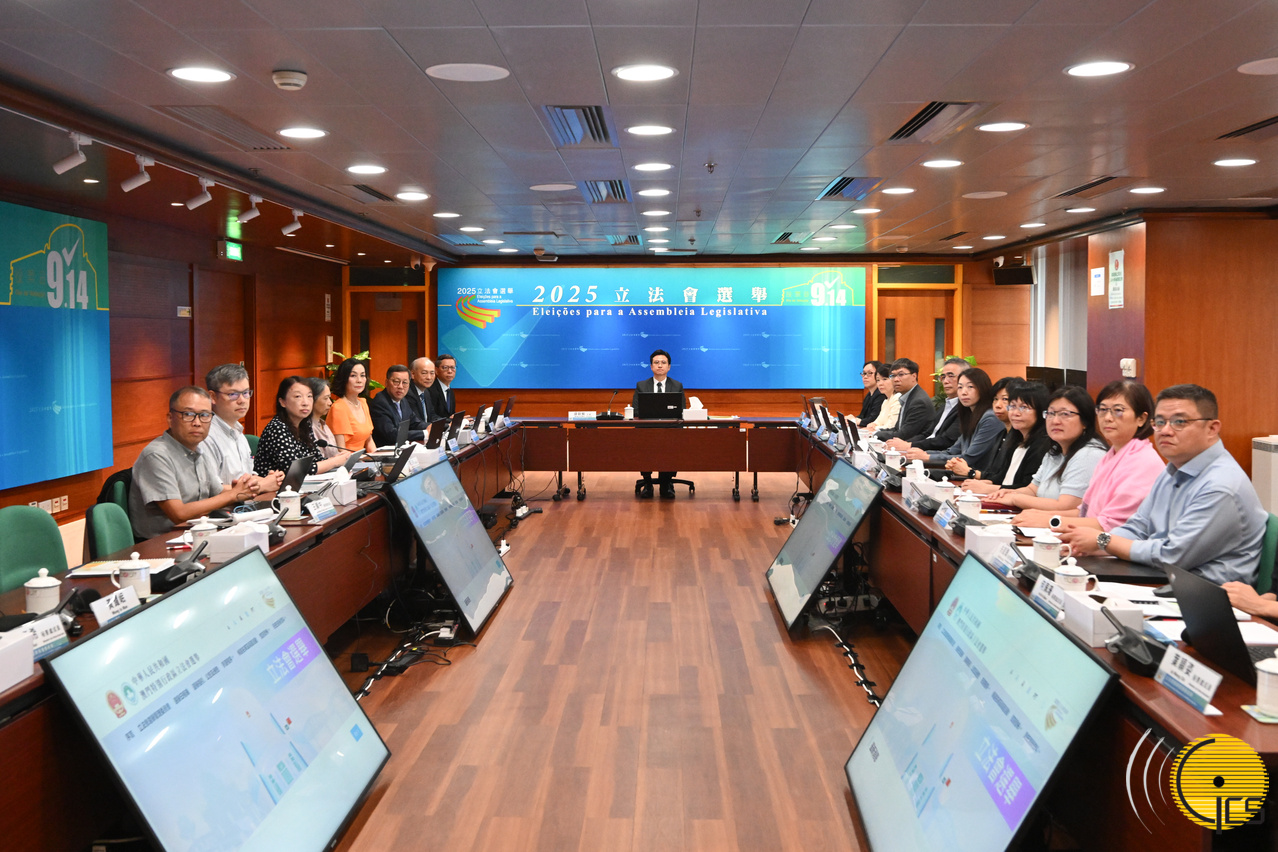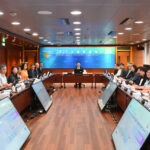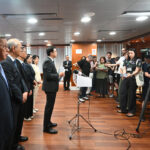 The Electoral Affairs Commission for the Legislative Assembly Election holds a work meeting.
The Electoral Affairs Commission for the Legislative Assembly Election holds a work meeting.
The Electoral Affairs Commission for the Legislative Assembly Election announced the 37 polling locations for the Legislative Assembly Election, one more location than in the previous election.
The 37 polling locations will host in aggregate 38 polling stations for direct election and five polling stations for the indirect election. The polling stations will be open to public from 9am to 9pm on Election Day, i.e., 14 September.
The Chairman of the Electoral Affairs Commission, Mr Seng Ioi Man, gave the information to reporters today after a working meeting of the Electoral Affairs Commission.
Mr Seng stated that the Electoral Affairs Commission determined the polling locations after comprehensive assessments of voter distribution, as well as general site accessibility, available onsite space, and whether physical access was free of barriers. The location of most of the polling stations for the direct election is the same as for the previous election. The few changes that have been made involve using more suitable venues in the same district. Coloane Prison will host one polling station for eligible voters regarding the direct election.
For the first time, indirect-election voting will be conducted at two separate locations. One location has three polling stations and the other location has two. The aim is to streamline procedures and prevent the need for voters to queue. This approach is based on lessons learned from previous elections. Both of the voting locations available for the indirect election will also have facilities for vote-casting for the direct election.
There is a backup polling station at Mong Ha Sports Complex in case of need. Voters will be notified promptly via appropriate channels regarding any adjustments in voting location.
The Electoral Affairs Commission will shortly mail polling notices to all eligible voters, and will launch, in early August, several enquiry platforms for voters to learn about their polling stations. The enquiry platforms will include: the Macao One Account; a voice enquiry system; and self-service kiosks. The arrangements are to ensure voters are informed of their designated polling stations and can cast their ballots at the correct locations on 14 September, said Mr Seng.
Additionally, Mr Seng stated that the Electoral Affairs Commission was pushing ahead with the design and planning of polling locations and stations, to optimise queuing arrangements, voter flow, and the overall voting process.
For the coming election, over 770 voting booths would be set up across direct- and indirect-election polling stations, an increase of over 80 booths from the previous election. This is to allow a greater number of voters to cast their ballots at the same time; significantly reduce waiting times; and encourage voter turnout on 14 September. All polling stations will feature voting booths dedicated for use by persons with disabilities, and physical access to facilities will either be enhanced or created, to ensure all voters can complete the voting process conveniently.
The Electoral Affairs Commission has prioritised the technical stability of computer equipment, network systems, and power supplies at polling stations. In addition to upgrading hardware, dedicated technical personnel would be stationed at all locations to monitor and maintain systems throughout the voting period. To ensure fail-safe operations, contingency plans have been developed to guarantee uninterrupted voting even in the event of electronic system failures.
Mr Seng added that verification of candidate lists was progressing in an orderly manner. At this stage, the Electoral Affairs Commission has not identified any procedural non-compliance, or candidates lacking eligibility, thus no candidate lists have so far required rectification. The Electoral Affairs Commission will finalise its verification processes by 15 July and announce the results.
Regarding campaign promotional materials, Mr Seng highlighted that once the officially-accepted candidate lists were announced, each list may notify the Electoral Affairs Commission of three categories of campaign materials intended for distribution during the campaign period. They included: promotional materials distributed to the public; items distributed to participants at campaign rallies; and materials used by campaign staff. Detailed information – including quantities of such materials, and prices – would be required.
Mr Seng issued a reminder that distribution of materials must avoid being constituted as vote-buying. The Electoral Affairs Commission and the Commission Against Corruption would review submitted notifications regarding campaign materials and issue alerts if benefit-in-kind approaches were suspected. The Electoral Affairs Commission also advised against bundling promotional items into gift-like packages for distribution.
The non-campaign period commenced on 27 June. The Electoral Affairs Commission has so far received, from law enforcement agencies, 13 cases of suspected violation and of online misconduct. The Electoral Affairs Commission was investigating the cases.




